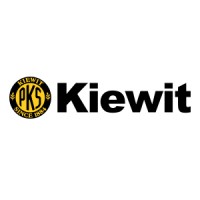Description
Uncontrolled Resource Consumption vulnerability in Legion of the Bouncy Castle Inc. Bouncy Castle for Java FIPS bc-fips on All (API modules), Legion of the Bouncy Castle Inc. Bouncy Castle for Java LTS bcprov-lts8on on All (API modules) allows Excessive Allocation. This vulnerability is associated with program files core/src/main/jdk1.9/org/bouncycastle/crypto/fips/AESNativeCFB.Java, core/src/main/jdk1.9/org/bouncycastle/crypto/fips/AESNativeGCM.Java, core/src/main/jdk1.9/org/bouncycastle/crypto/fips/SHA256NativeDigest.Java, core/src/main/jdk1.9/org/bouncycastle/crypto/fips/AESNativeEngine.Java, core/src/main/jdk1.9/org/bouncycastle/crypto/fips/AESNativeCBC.Java, core/src/main/jdk1.9/org/bouncycastle/crypto/fips/AESNativeCTR.Java, core/src/main/jdk1.9/org/bouncycastle/crypto/engines/AESNativeCFB.Java, core/src/main/jdk1.9/org/bouncycastle/crypto/engines/AESNativeGCM.Java, core/src/main/jdk1.9/org/bouncycastle/crypto/engines/AESNativeEngine.Java, core/src/main/jdk1.9/org/bouncycastle/crypto/engines/AESNativeCBC.Java, core/src/main/jdk1.9/org/bouncycastle/crypto/engines/AESNativeGCMSIV.Java, core/src/main/jdk1.9/org/bouncycastle/crypto/engines/AESNativeCCM.Java, core/src/main/jdk1.9/org/bouncycastle/crypto/engines/AESNativeCTR.Java, core/src/main/jdk1.9/org/bouncycastle/crypto/digests/SHA256NativeDigest.Java, core/src/main/jdk1.9/org/bouncycastle/crypto/digests/SHA224NativeDigest.Java, core/src/main/jdk1.9/org/bouncycastle/crypto/digests/SHA3NativeDigest.Java, core/src/main/jdk1.9/org/bouncycastle/crypto/digests/SHAKENativeDigest.Java, core/src/main/jdk1.9/org/bouncycastle/crypto/digests/SHA512NativeDigest.Java, core/src/main/jdk1.9/org/bouncycastle/crypto/digests/SHA384NativeDigest.Java. This issue affects Bouncy Castle for Java FIPS: from 2.1.0 through 2.1.1; Bouncy Castle for Java LTS: from 2.73.0 through 2.73.7.
Risk Information
cvss4
Base: 5.9
Severity: LOW
CVSS:4.0/AV:L/AC:L/AT:P/PR:N/UI:N/VC:N/VI:N/VA:H/SC:N/SI:N/SA:N/E:X/CR:X/IR:X/AR:X/MAV:X/MAC:X/MAT:X/MPR:X/MUI:X/MVC:X/MVI:X/MVA:X/MSC:X/MSI:X/MSA:X/S:P/AU:N/R:U/V:C/RE:M/U:Amber







